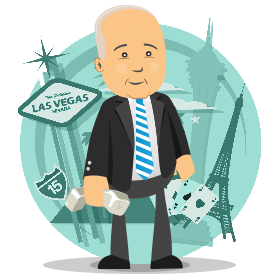When a business receives a complaint about a product, service or experience, it’s a common mistake to believe that this bad customer service is solely the fault of the employee who provided the service. It’s easy to blame the employee instead of the business model. But let me ask you this: who trained the employee? Who told them how to behave? How to handle the situation? How to provide the service? Good customer service habits start at the top and trickle down.
It’s naive to believe your employees are going to provide excellent customer service without the proper tools, and it all starts with creating a culture of customer service. So, how do we create a culture where employees genuinely want to provide good service?
It would be easy for me to quote a successful business person on customer service… so that’s exactly what I’m going to do.
“Clients do not come first. Employees comes first.”
Richard Branson said that. Branson’s a man whose business is dependent on positive customer experiences; a man who’s worth a measly $4.8 billion.
Hire People Who Fit Your Culture

This one’s a no brainer. You know the kind of service you want to provide your clients with, so make sure you hire people who are going to understand and support your ideas. Conversely, it’s important to keep your culture strong and be aware of how your culture is viewed from the outside. Think it’s not important? Take a look at this from Careers Wiki:
• 69% of people will not take a job with a company that has a bad reputation, even if they are unemployed.
Train Your Staff Around Your Culture
Bad habits form quickly. Once formed, they’re incredibly hard to break. The same goes for good habits. If you truly believe that an employee has the ability and passion to fit within your culture, it’s imperative to have them practicing and doing the right things when and where they’re required. You should be confident that all of your employees categorically understand what your company stands for, where it is and where you want it to go. The following from Stack Hands might surprise you:
• 64% of all employees do not feel they have a strong work culture;
• Peers and camaraderie are the #1 reason employees go the extra mile – not money.
Focus on the Process
Recently, there has been quite a lot of research surrounding the benefits of encouragement over praise when raising children. This is an idea quite heavily implemented within teaching communities. However, it’s just as important in a business environment.
The problem with praise is that it focuses too heavily on the end result. That’s great – everyone loves results, but in business it’s more important to focus on the process. How did we get these results? What did do? What can we do better? This way, you’ll know how to obtain the same results consistently. After all, it’s a solid process that yields results.
So encourage your staff to become involved in the process. Create an environment where your employees feel the desire to succeed out of their own volition rather than to simply be rewarded. You want your staff to want to succeed.
Lead By Example
You want your employees to represent your company values and project a positive image. Sounds good, right? Chances are your staff wants this, too. Just like children mimic the behaviour of their parents, employees are quick to mimic the attitudes and behaviours of their employers. If you want your staff to be on the same page, you must ensure that you’re on the same page as well. Lead by example. Be a role model. Be accountable. And your staff will follow suit. According to Dale Carnegie:
• 70% of employees who lack confidence in the abilities of senior leadership are not fully engaged;
• 80% of employees dissatisfied with their direct manager are disengaged.
Engage Your Employees and They’ll Engage with You
When it comes to customer service, monotony is like a disease. The quicker it’s caught, the more likely you are to cure it. It’s important to set small, achievable goals for your employees to keep them engaged and genuinely interested in what they’re doing. Creating a sense of achievement and confidence within your workforce motivates employees to work more diligently and take more enjoyment from their work.
Don’t believe me? Here’s some more compelling statistics from Talent Culture:
• Increasing employee engagement investments by 10% can increase profits by $2,400 per employee, per year;
• Highly engaged employees are 38% more likely to have above-average productivity;
• 64% of millennials would rather make $40K a year at a job they love than $100K a year at a job they think is boring.
In a similar vein, make sure you acknowledge your employees for jobs done well. It’s important to let your employees know that their hard work isn’t going unnoticed.
I understand how all of this may seem quite daunting, but you don’t have to go it alone – take a look at canity.com and let us bring your employee culture into the customer service light!













